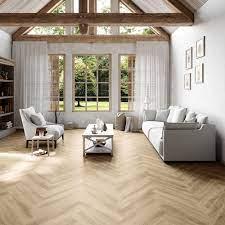Hospitality Flooring Market Evolves With Designer Flooring That Reflects Hotel Branding and Guest Experience

The hospitality flooring market is undergoing a transformation in 2025 as hotels, resorts, and boutique properties increasingly adopt designer flooring that reinforces brand identity and enhances the guest experience. Flooring is no longer just a functional necessity; it has become a strategic element of interior design, capable of telling a story, guiding guest movement, and elevating overall aesthetics. Modern travelers expect interiors that are visually striking, comfortable, and aligned with the property’s personality, making designer flooring a key differentiator in competitive hospitality markets.
This evolution reflects a broader trend where customization, luxury, and functional design are critical in shaping memorable hospitality experiences.
Designer Flooring: A Reflection of Brand Identity
Hotels are leveraging flooring as a branding tool to create cohesive and immersive environments.
1. Custom Patterns and Graphics
Digital printing and modular tile systems enable hotels to incorporate logos, motifs, and thematic patterns into flooring. Lobbies, lounges, and event spaces can feature bespoke designs that align with the brand’s image and storytelling.
2. Color and Texture Selection
Strategic use of colors and textures helps define spaces while reinforcing brand identity. Luxury resorts might choose rich wood-look finishes or marble-inspired tiles, while boutique hotels may opt for playful patterns and bold textures to create unique experiences.
3. Integration With Overall Interior Design
Designer flooring harmonizes with wall finishes, furniture, and lighting to create cohesive, visually appealing spaces. This integration strengthens brand messaging and leaves a lasting impression on guests.
Enhancing Guest Experience Through Flooring Design
Beyond aesthetics, designer flooring contributes directly to guest comfort, safety, and well-being.
1. Acoustic Comfort
Carpet tiles, cork underlays, and layered vinyl solutions reduce noise in corridors, guest rooms, and lounges, ensuring a peaceful environment that enhances relaxation and satisfaction.
2. Safety and Durability
Anti-slip, water-resistant, and stain-resistant materials ensure that high-traffic areas remain safe and low-maintenance, allowing guests to move comfortably while maintaining the property’s luxurious appeal.
3. Sensory Appeal
Modern flooring options are designed to engage the senses, with textures that feel pleasant underfoot and finishes that complement lighting and décor, creating a multi-sensory experience that enhances guest satisfaction.
Innovative Flooring Materials in Hospitality
Several flooring materials are gaining popularity for their designer appeal, durability, and customization potential:
-
Luxury Vinyl Tiles (LVT): Can mimic wood, stone, or abstract designs while offering durability and ease of maintenance.
-
Engineered Wood and Bamboo: Provide warmth, elegance, and eco-friendly credentials suitable for guest rooms and lounges.
-
Recycled Carpet Tiles: Offer modularity, acoustic benefits, and sustainable design options, ideal for corridors and conference spaces.
-
Polished Concrete and Stone: Deliver a premium, modern look for lobbies and public areas while supporting long-term durability.
Benefits Across Hospitality Spaces
-
Lobbies & Reception Areas: Custom flooring creates a strong first impression and reinforces branding.
-
Guest Rooms: Soft, comfortable, and visually cohesive flooring enhances relaxation and overall experience.
-
Corridors & Hallways: Modular and durable tiles reduce maintenance costs while managing high foot traffic.
-
Restaurants & Bars: Designer patterns and easy-clean surfaces combine style with operational efficiency.
-
Spas & Wellness Areas: Flooring that supports tranquility, acoustic comfort, and natural aesthetics enhances wellness-focused experiences.
Market Outlook: Designer Flooring Driving Growth
The hospitality flooring market is expected to expand as designer, customizable, and brand-aligned flooring solutions become standard in hotel and resort design. Key growth drivers include:
-
Rising adoption of digitally printed, modular, and customizable flooring
-
Increased focus on guest comfort, safety, and wellness
-
Growth of boutique, luxury, and lifestyle hotels emphasizing unique experiences
-
Demand for durable, low-maintenance materials that complement brand aesthetics
Manufacturers offering innovative, customizable, and high-quality flooring solutions are well-positioned to capture this growing demand across global hospitality markets.
Conclusion
In 2025, the hospitality flooring market is evolving with designer flooring solutions that reflect hotel branding and elevate guest experience. By integrating custom patterns, luxurious materials, and functional innovations, hotels and resorts can create memorable, immersive spaces that enhance comfort, safety, and aesthetic appeal.
Investing in designer flooring not only strengthens brand identity but also improves operational efficiency and guest satisfaction, positioning properties for long-term success in an increasingly competitive hospitality industry.
- AI
- Vitamins
- Health
- Admin/office jobs
- News
- Art
- Causes
- Crafts
- Dance
- Drinks
- Film
- Fitness
- Food
- Games
- Gardening
- Health
- Home
- Literature
- Music
- Networking
- Other
- Party
- Religion
- Shopping
- Sports
- Theater
- Wellness


